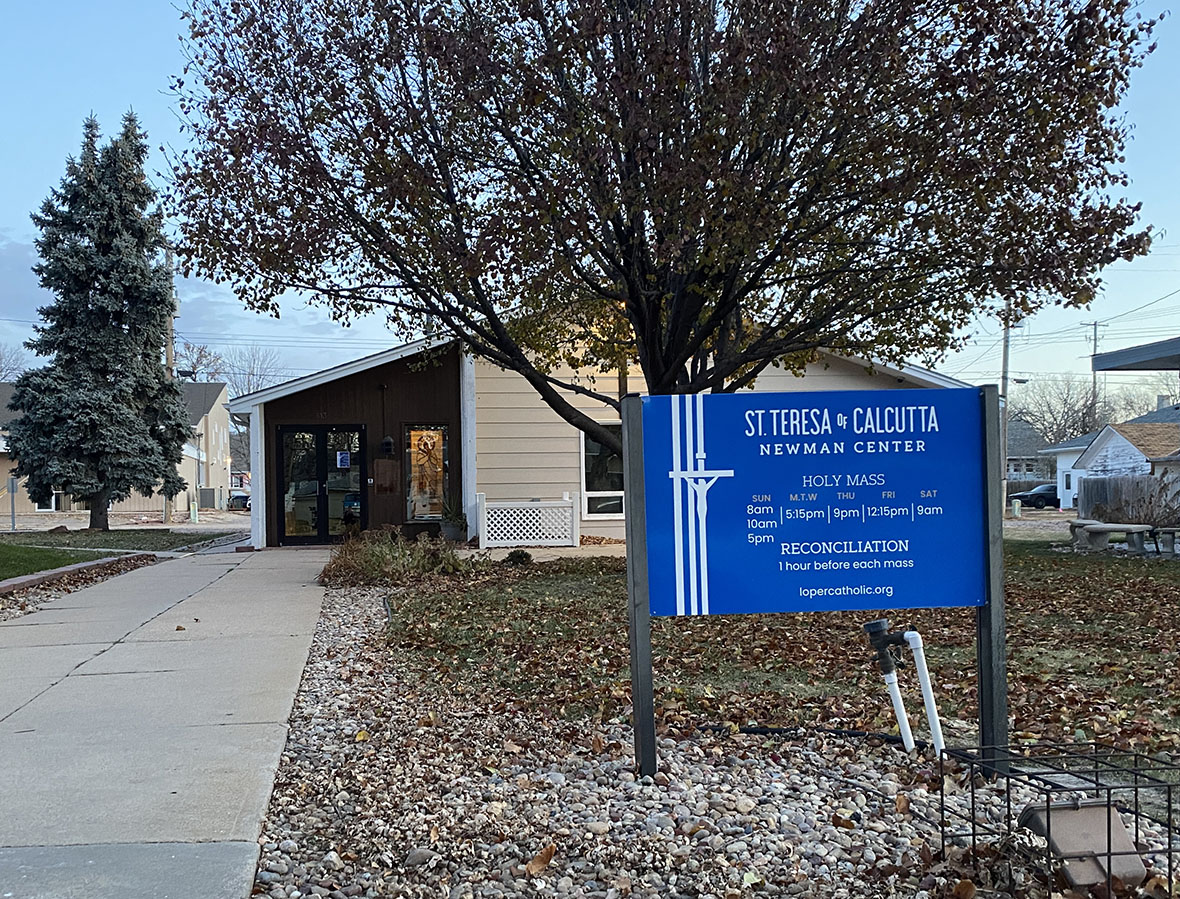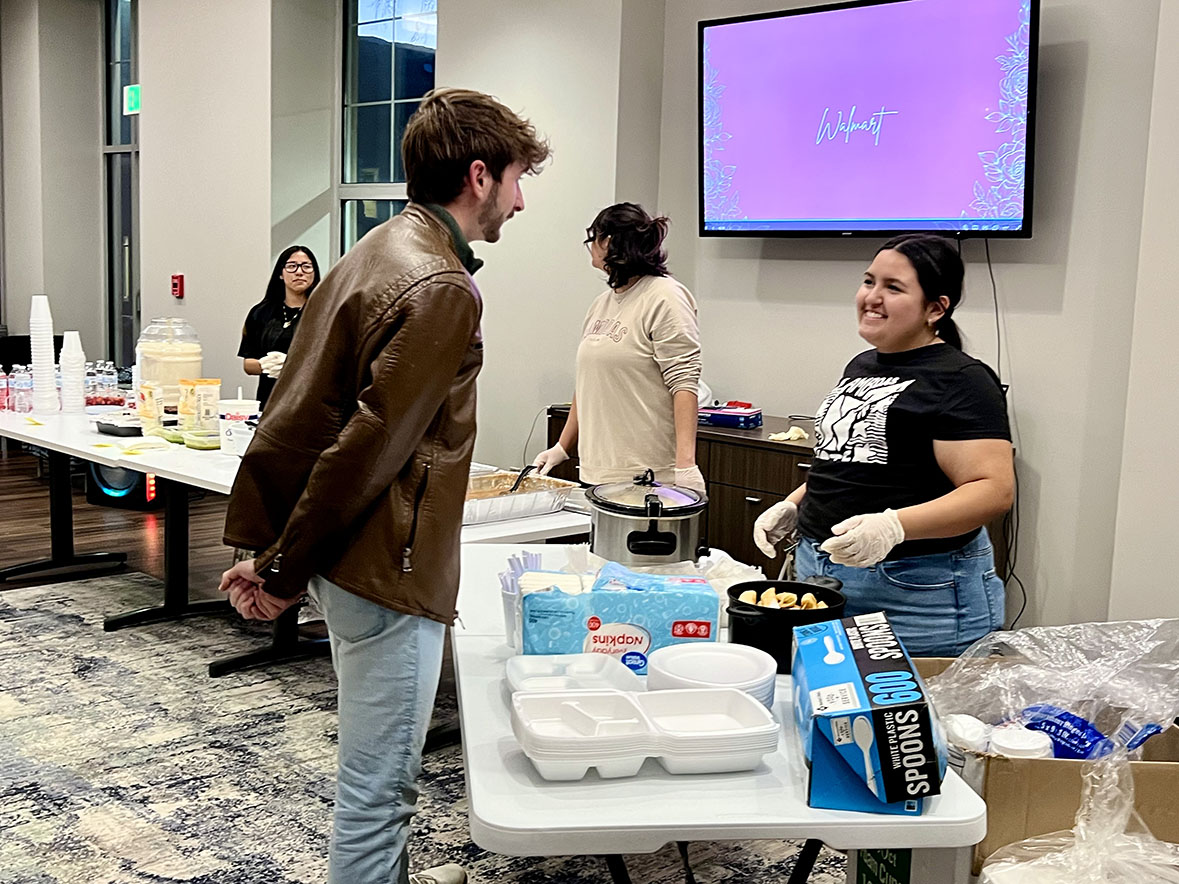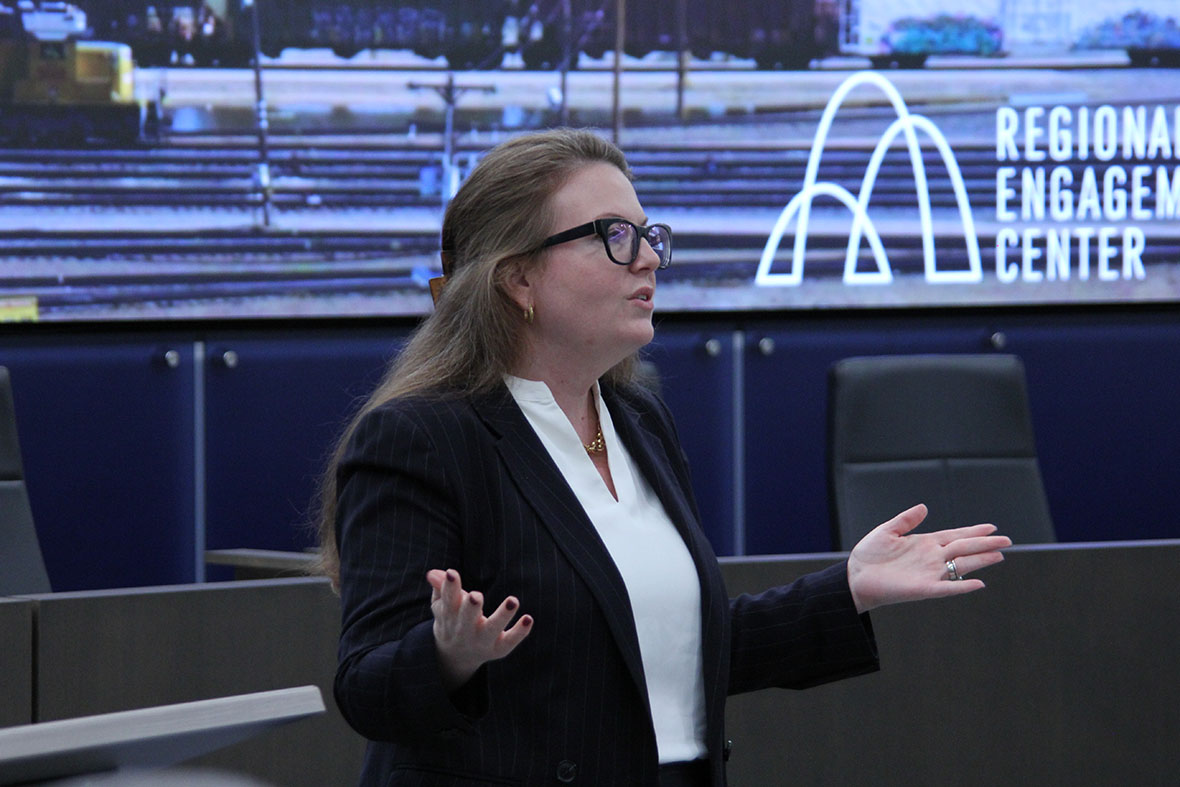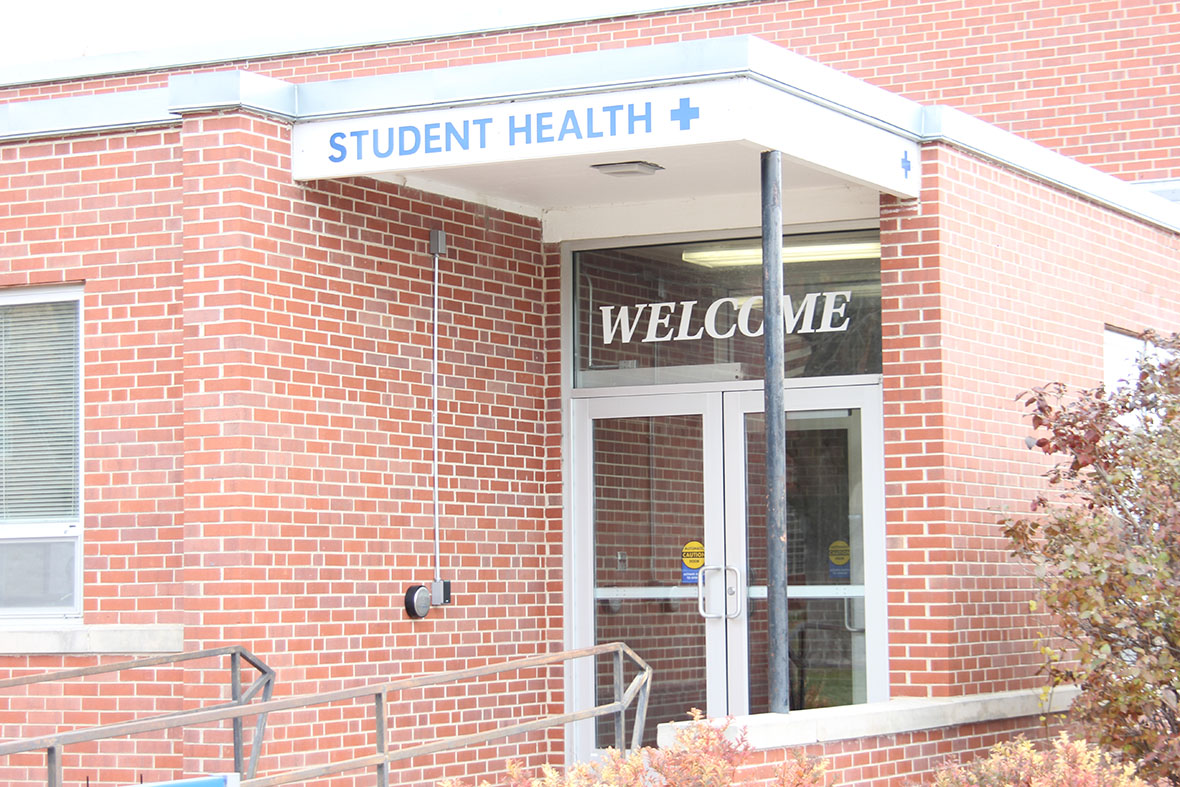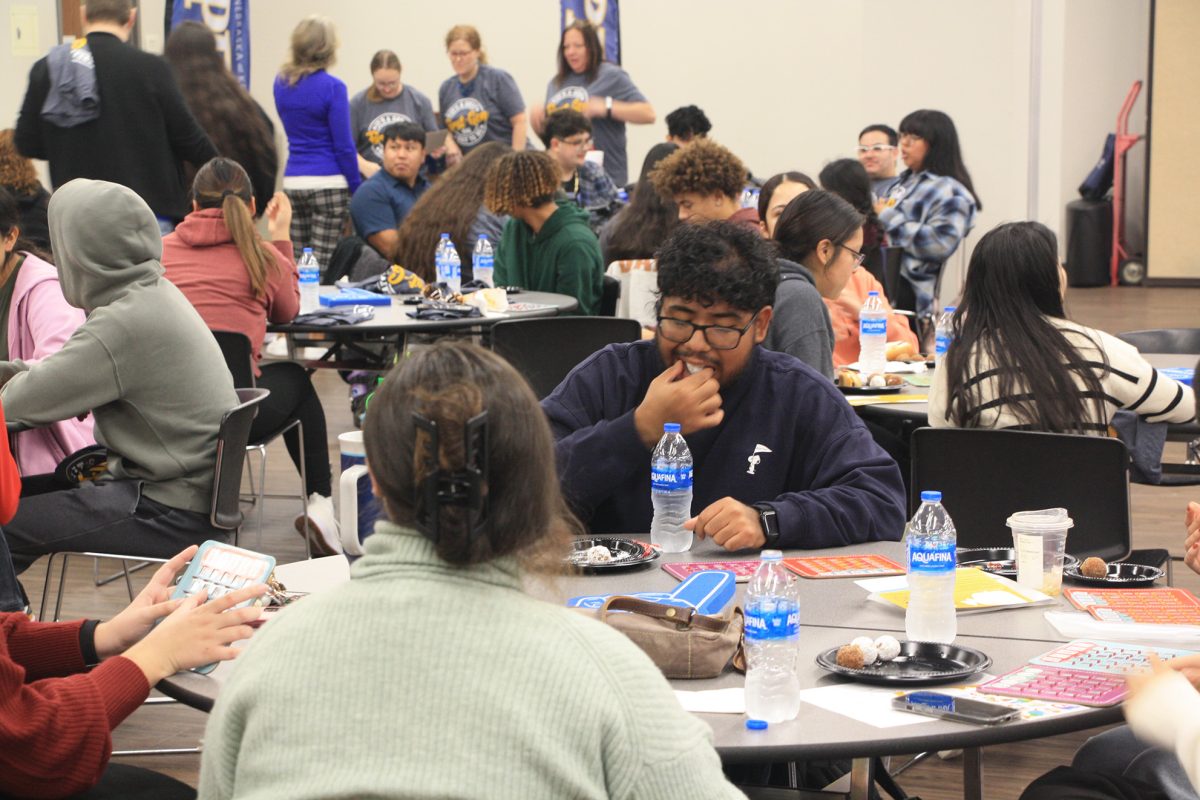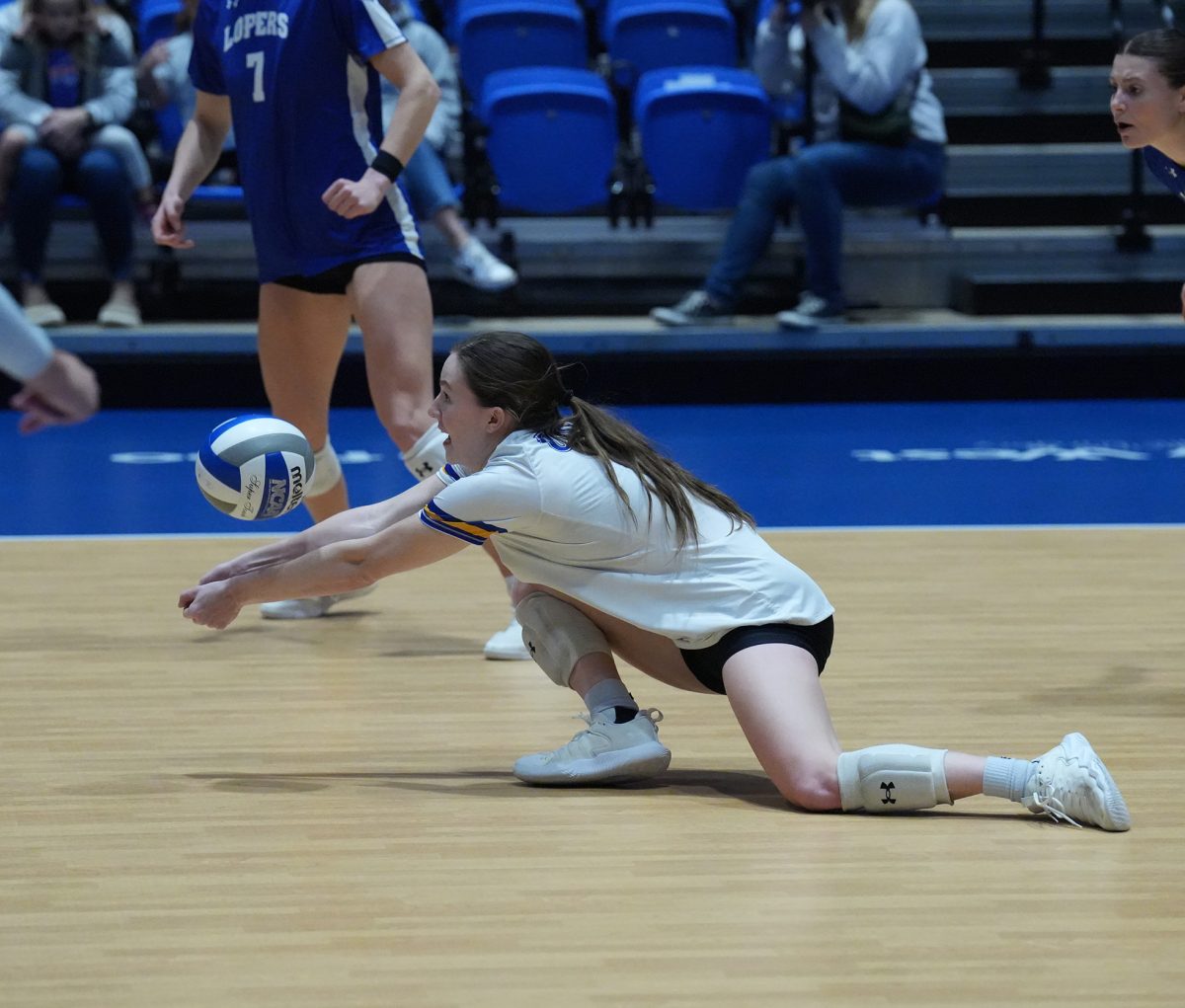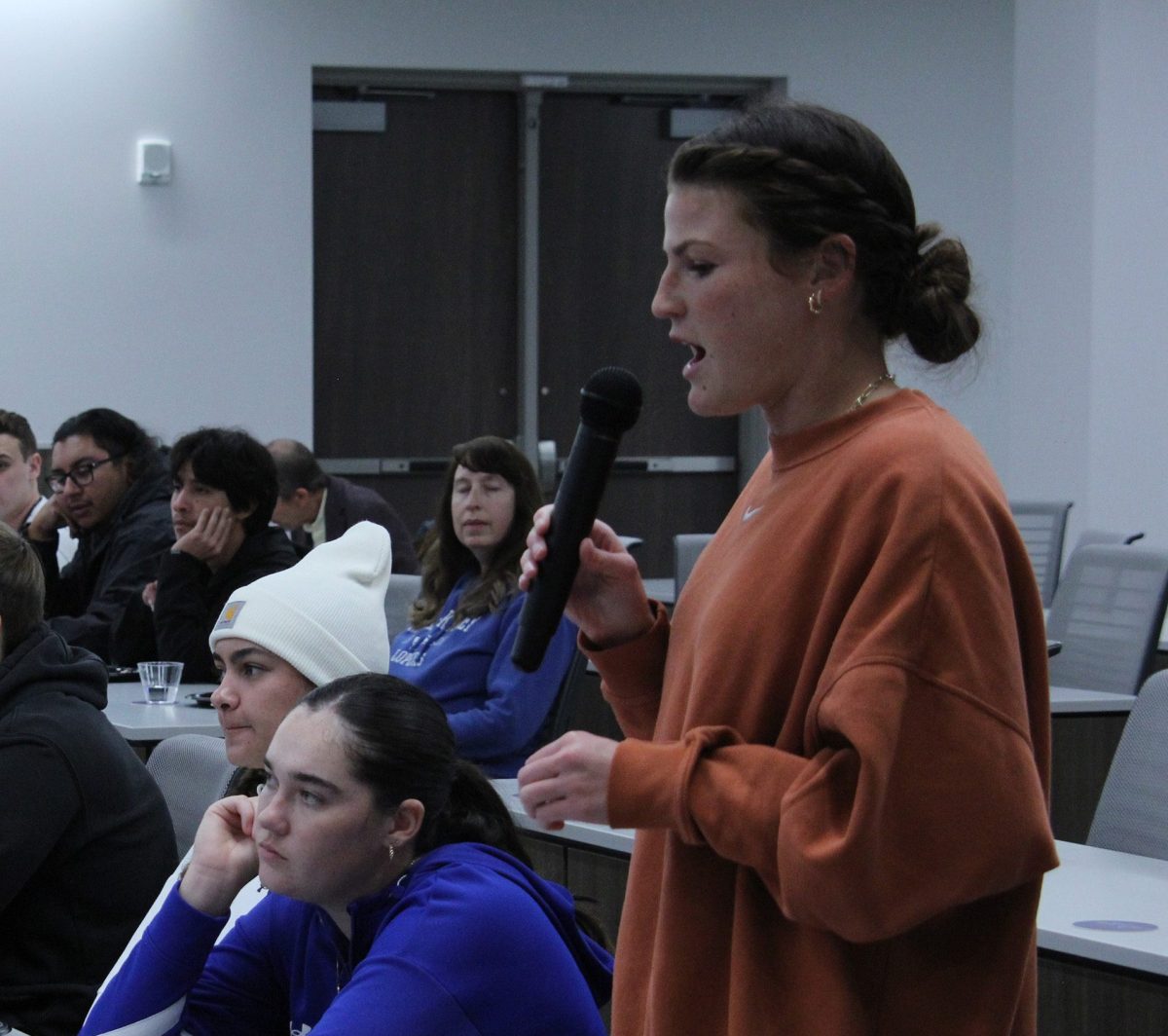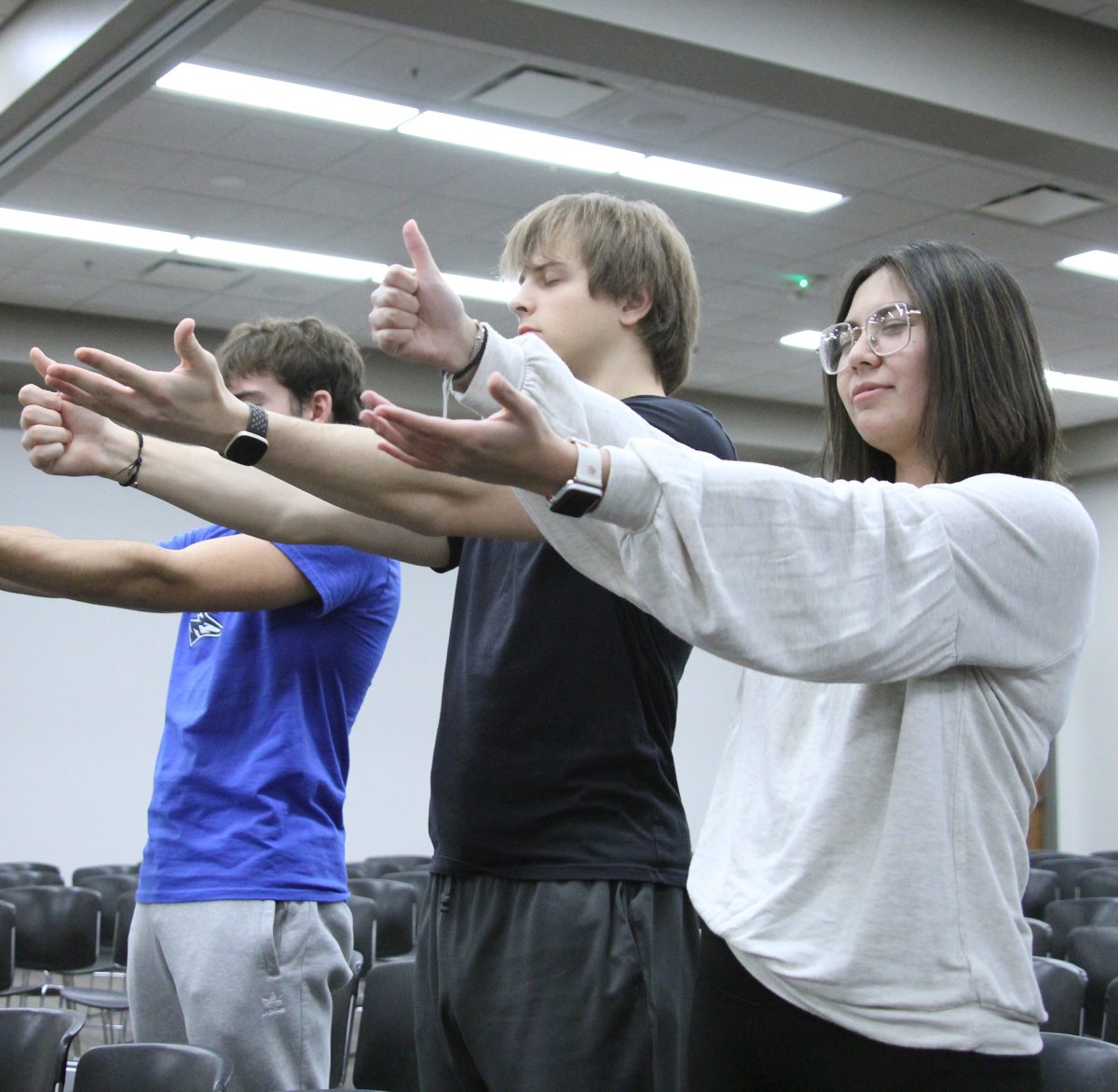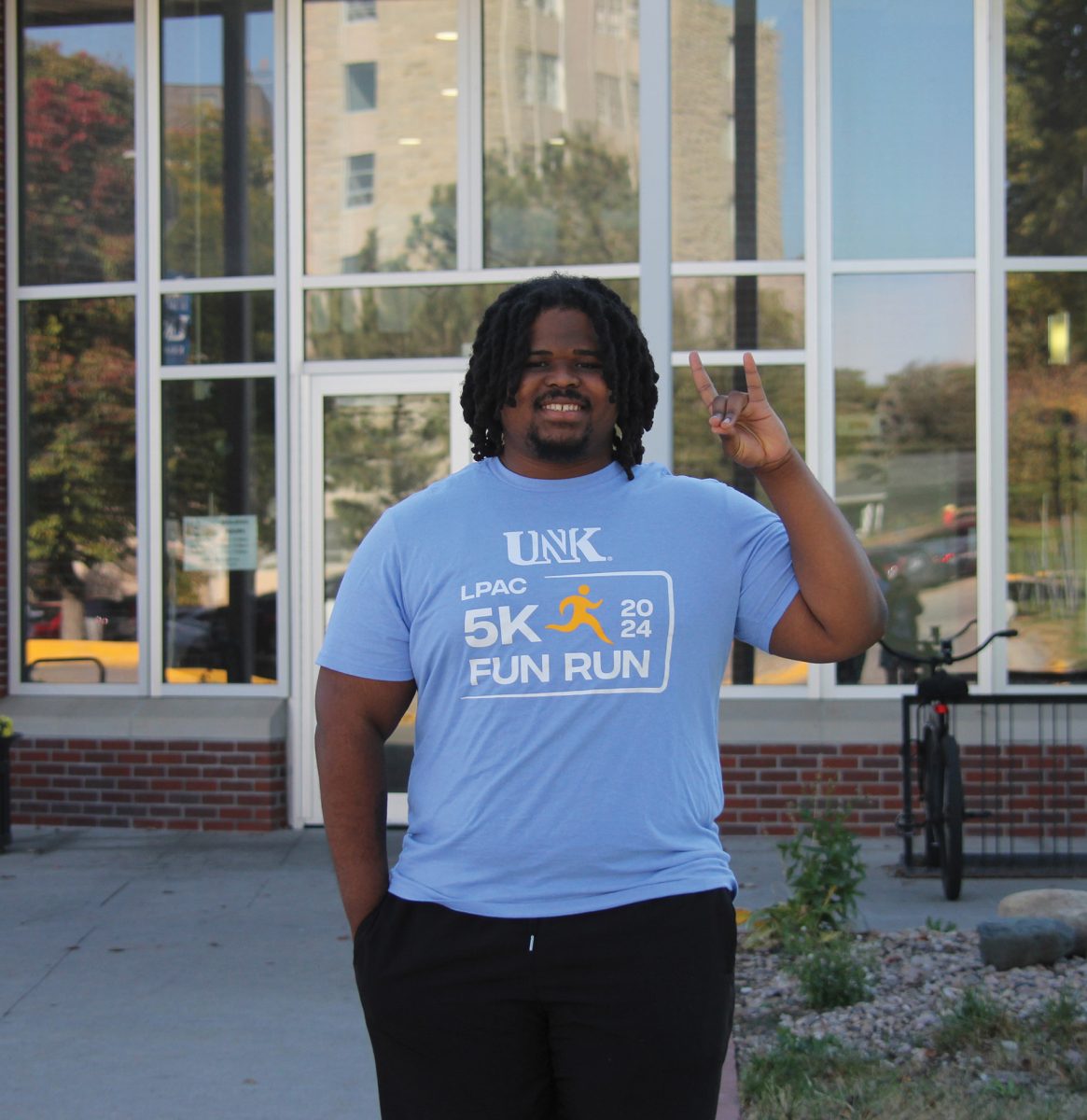Why do we keep changing healthcare education and why haven’t we gotten it right by now?
Brock Madsen
Antelope Staff
The first science café lecture of 2017 hosted Monday Jan. 23, by UNK’s Sigma Xi chapter, featured Dr. Greg Karst, executive associate dean of the University of Nebraska Medical Center.
Karst picked up the microphone and took to the floor for the better part of an hour to discuss the nuisance and necessity of constant change in health care education, with his lecture titled: “Educational Reform in the Health Professions: Are we there yet?”
The “are we there yet?” part of the lecture is an homage to the phenomenon that healthcare education is constantly being amended, reformed, tweaked or revised in one way or another.
Due to the rate at which reformations have always been thrown at health care education, the education and experience between any two med students who graduate ten years apart, isn’t even comparable.
Something repeated tThroughout the presentation Karst emphasized was that, the medical field, as one of the core pillars of a modern society and one of the toughest fields in education, is of course going to be tricky to perfect.
The main function of Karst’s lecture was to create discussion about multiple aspects of current health care education, where he feels improvement clearly seems necessary.
By all means, healthcare education systems are still turning out fine doctors, but there is always room for improvement. Karst, as a survivor of medical school and a seasoned medical professional, has great used his insight and as an authoritative voice when it comes to the health care education systems’ shortcomings.
One thing that has seemed to remain constant throughout the ever-fickle field of medical school, he said, is the class bias towards those who can make it in and/or make it through.
As a first-generation college student from rural Kansas, Karst is said he is acutely aware how having a rural background and coming from a low-income family with no history of higher education can make it more difficult for one to enter the medical world, even if only at the educational level.
Karst said “While there undeniably is a lack of racial diversity, I am convinced that coming from a family with a relatively low income, parents who never attended college and living in a very rural area are also very strong impediments to a young person ever applying to professional school, let alone being accepted.”
Karst testifies to said there is a lack of racial diversity in the medical field, but thankfully one’s race does not seem to strictly be a judgmental criterion as to whether one makes it in as. As many of the nation’s universities and colleges encourage racial diversity and often offer scholarships to minorities after all. The kind of discrimination we seem to see in medical education is that, if you don’t come from an upper middle class family with a history of higher education, medical school is going to be even more elusive for you.
Karst himself, a highly successful participant in the medical profession,says he is a prime example of how someone who is not “favorited” by the system’s arbitrary socioeconomic class standards, can still be a great contributor to the field.
How ironic is it to think that multitudes of medical talent may go unnoticed, by this crowd who spends all their time with their faces in textbook pages, but who apparently in this case like to judge books by their covers.
If making it into medical school alone wasn’t hard enough, Karst goes on to show us how performance expectations and the methods of education within the system are demonstrably flawed and beyond unrealistic.
One of the most glaringly apparent problems in med schools today, is the certainty of information overload in medical school programs.
Educating oneself to become a health practitioner has become more and more focused on the practice of binging and purging the information in one’s textbooks, rather than actual comprehensive retention of the content, he said. Students these days can do nothing more than cram their week’s lessons, just to spill the information out onto the upcoming quiz or exam, and then forget it all while they worry their hair white about all they’ll have to learn before the next test.
Karst appealed to the science café crowd with one of the those things scientists love most, a graph, which showed the rate at which the information expected to be retained by med students has grown over time.
Called “curricular bloat,”, at today’s current rate, we are seeing medical knowledge double every three years, and by 2020 it is expected to double every 73 days. This is clearly an unsustainable growth pattern and nobody could ever be expected to keep pace with such standards, he said.
Karst testified that one of the major reasons we are seeing this curricular bloat, is that more and more information keeps gettingis added into what is expected to be learned by med students, but the rate of consolidation of that information is so low. “If you keep putting in, eventually you have to take something else out, which we just aren’t seeing enough of,” he said.
One certainly controversial point Karst mentioned put forth was that perhaps there are some levels of detail in the information one is expected to know, that as professionals of the 21st century, just aren’t necessary.
“Does every physiologist need to accurately remember the name of every single foramen or bone structure in the human skull? ?”, he asked. Not necessarily, these days there’s Google for that.
Should a doctor spend years and years memorizing things that could be forgotten or recalled incorrectly, or should we start getting used to the idea that even those who look after our health, can be allowed to Google something real quickly if it all the more contributes to their accuracy?
When third year medical students are tested again on knowledge, they are supposed to have learned in their first year, test scores on average drop at least whole letter grades and in some subjects, students are lucky if they can show they have retained a little over half of what was taught to them previously, he said.
Ryan Splittgerber, gross anatomy lab director at UNMC Kearney was in attendance and testified said that he has often had to re-teach his resident students on basic anatomy. Since it’s one of the earlier classes med students take, between all the other information one is expected to learn from undergrad to residency, by this stage they’ve forgotten the majority of what they’re expected to know. These are resident’s about to become doctors, and they need to be reeducated on freshman/sophomore information, he said. Which should be as concerning as it sounds.
Many books could be written on healthcare education reform; however, this publication only has the room to mention these highlights from a few of the discussions from Dr. Karst’s lecture.
The medical education system is rather great at what it does, but, flaws within it do persist. Some of those flaws are broad in their scope, others narrow. Some of them are trivial and others are more urgent and warrant quick and serious assessment, Karst said.
Karst’s talk was a great platform to get the word out to scholars and different- colored collars alike to be made aware what their health professionals are facing or have had to face. These aren’t just the healthcare education system’s students, they’re also everyday peoples’ doctors. And everyday people should have the assurance, that their healthcare professional’s education is all it can be.

